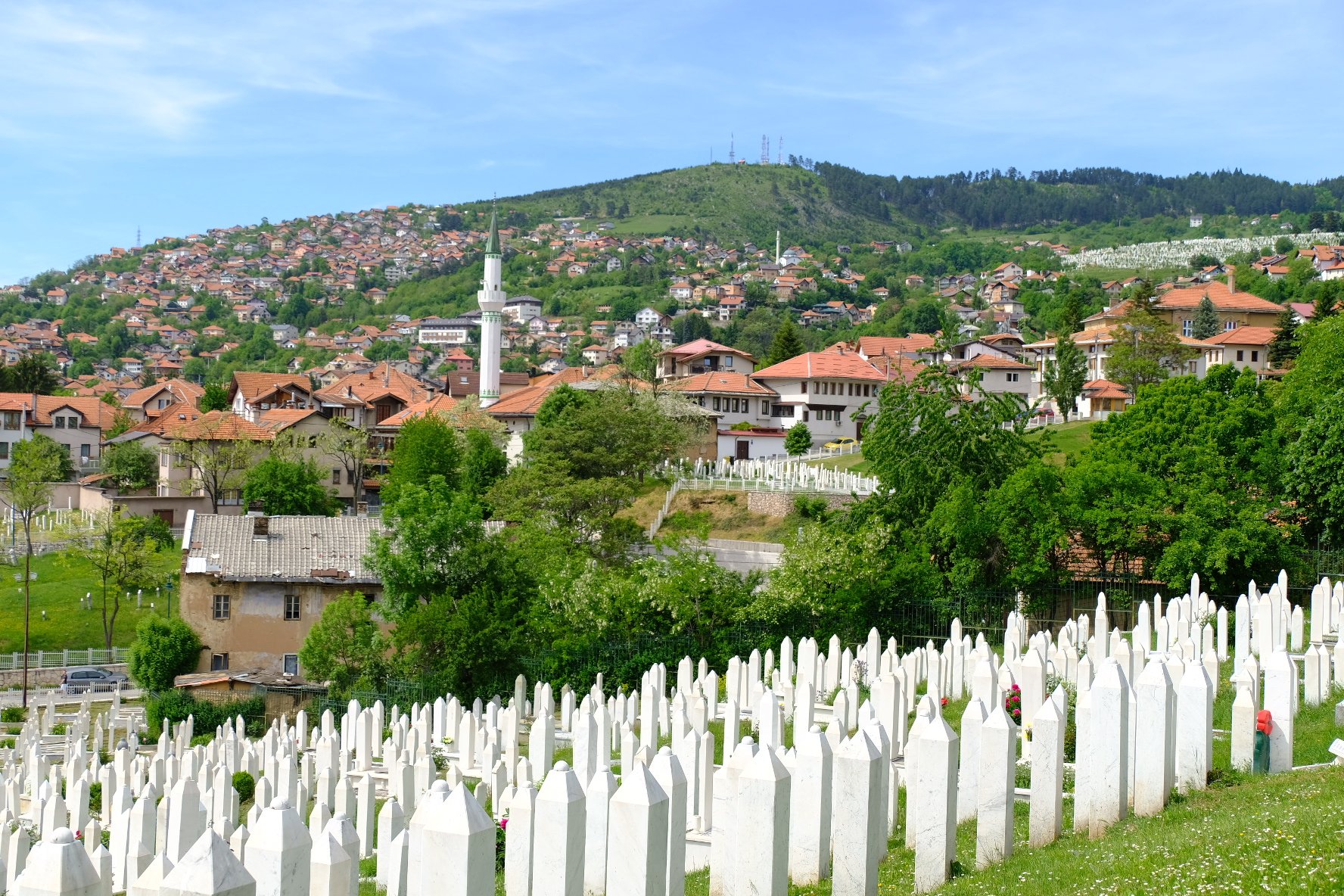LATEST POSTS
Column from Sarajevo: Sevdah music as therapy for dealing with the trauma of war
Several nights ago, I was invited by my dear friend to come to Vratnik, but this time to a local “kafana” (pub) to come and sing Sevdah, a traditional genre of song from Bosnia that usually talks about unrequited love, tragedy, and fallen heroes. I’m a big advocate of in-person therapy, but oftentimes that type of therapy is unavailable or unattainable. So that evening, I decided to offer a different kind of therapy, the kind that sings songs of sorrow and gives permission to even the most hardened of men to experience the emotions of pain.
Working Toward Trauma-Informed Peace in Bosnia and Herzegovina
The prevalence of transgenerational trauma in Bosnia and Herzegovina is not well understood or communicated. The older generations, who lived through and survived the war, never received the help needed to heal from that trauma, and this results in mental health issues for the country’s youth that are made even worse by the persistence of ethnically-biased and conflicting narratives. This is all why our intern in Sarajevo is learning from and working with a local organization called Progres as part of her internship with us. Keep reading for more about what she’s learning.
Tackling Conflict: A 6-Session Conflict Transformation Workshop Series
Together with our good friend and colleague Orhan Hadžagić, we’re hosting our first 6-week workshop series in September and October on conflict transformation. Learn more about it, and contact us to bring the workshops to your community.
The Dual Impact of Local-Inclusive Peacebuilding Learning Pilgrimages
In a world rife with conflict and division, peacebuilding is a felt need in our families, communities, and wider society. Traditional approaches to conflict resolution often focused on political strategies and the most visible leaders, but there’s a growing awareness that sustainable peace requires a more holistic approach that involves everyday people like you and me. One innovative approach that we are leaning into at Peace Catalyst is the idea of a “peacebuilding learning pilgrimage” that includes active local participation. This transformative experience combines groups of foreign and local participants who learn from local peacebuilding practitioners about challenges and successes in their peace work. By including and valuing the voices of local participants, this approach empowers local populations in conflict-affected zones like Bosnia & Herzegovina (BiH) while simultaneously creating a lasting impact on participants from foreign countries.
The Car Horn Makes Me Jump and Scream
For the past 10 years I developed an interest in studying trauma. I must admit that my interest in the topic started from purely selfish reasons. I wanted to investigate and try to explain to myself the events that took place in my past. And try to understand why I jump and scream every time there is a sudden loud noise, thinking who is shooting, from what direction, and is my life under threat? Slowly, this interest grew to a much larger scale. I took on the ambitious task of trying and understand how trauma travels through generations. And what consequences it leaves behind.
Exploring Sarajevo, the City of Trauma
There is a constant battle between the individual longing for freedom and civilisation demanding conformity and repression of instincts. And so, individuals are constantly sending subtle and not-so-subtle messages about their feelings and this restricted freedom. I had this on my mind recently as I took the trolley bus through Sarajevo.
Finding Hope Amid the Horrors of Violence: Lessons from Sarajevo
I applied to Notre Dame’s faculty-led trip to Bosnia and Herzegovina this summer because I wanted to learn more about a part of Europe that is often left out of history books and course syllabi. I wanted to educate myself on the rich history of the country, and the current situation in regards to peacebuilding. This trip did help me accomplish those goals, but the most impactful part of the journey was actually a conversation about my own country.
Religion, Identity, and Peace: Learning Through Cultural Immersion in Bosnia and Herzegovina
During our May student trip to Sarajevo, Amra, one of our discussion facilitators, laughed, cigarette dangling from her lips, as she likened the city to a femme fatale—alluring, but with a dark side. It was, we soon learned, an apt description for a lovely and complicated city, one that has been simultaneously strengthened and scarred by its history.
How I Learned to Appreciate Religion’s Role in Building Peace
Bosnia and Herzegovina is not a place I had ever pictured myself visiting. But thanks to a student trip made possible by the University of Notre Dame and Peace Catalyst International, I recently visited the country—not as a tourist, but as a student of peacebuilding who gained a new appreciation for the role of religion in peace processes and reconciliation.









